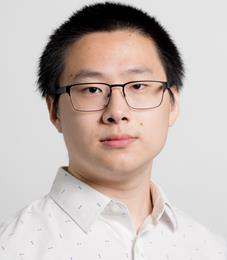Research offers experience to undergraduate students
Engineering students at Carnegie Mellon are often involved in research labs with faculty, post-doctoral researchers, and graduate students. But Marcus Yu had the unique experience of working in a lab that included researchers who were entirely undergraduate students.
Engineering students at Carnegie Mellon University are often involved in research labs with faculty, post-doctoral researchers, and graduate students. Most students will participate in research multiple semesters and during the summers since there are so many opportunities in the College of Engineering. But Marcus Yu, a chemical engineering student who recently graduated, worked in a lab with a unique population of researchers—everyone was an undergraduate student.
Yu worked in the Nanotechnology Lab, a wet lab focused on researching chiral separation and overseen by Nisha Shukla, a special faculty member from the Engineering Research Accelerator. Chiral separation is the process of filtering left-handed amino acids from right-handed one so that medical drugs can be composed of just one type—the type that is easier for the human body to latch on to.
Yu established a position with the lab by speaking with Shukla who was his professor and advisor during his very first semester at CMU. Simply making the connection was enough for her to offer a position in her lab, which Yu accepted after a visit that impressed him. He worked with the lab throughout his four years at CMU and developed a substantial amount of experience that helped him apply to doctoral programs this past year.
Reflecting on the fact that his lab peers were all fellow undergraduate students, Yu pointed out that, “Every student is familiar with each other’s course load and knowledge level.” This meant that the researchers knew which weeks would be busier than others and recognized that technical research conversations needed to happen early on. Not only were they assisting with each other’s research, but they were naturally available to work together on coursework.
As an undergraduate, I get to work on my own project. I have the independence and agency to pursue what I think is interesting.
Marcus Yu, May 2022 BS Recipient, Chemical Engineering
The lack of hierarchy within the lab was also a benefit according to Yu. “No one is really in charge of each other. I believe when you have a Ph.D. student in the lab, you’re going to be helping them with their project. As an undergraduate, I get to work on my own project. I have the independence and agency to pursue what I think is interesting.”

Marcus Yu, ChemE ’22
The students in the lab also felt a great deal of ownership toward their research, which may not be the case if they are assisting other researchers. “No two people have the exact same project within our lab even though the final goal may be similar,” explains Yu. “If someone needs to start a project and I’ve done something similar, I can help them get started. Then once they’re started, it’s all their project, their work.”
Yu graduated in May 2022 from CMU, receiving the Geoffrey D. Parfitt award for excellence in research in chemical engineering, as well as a Senior Leadership Recognition Award. He has gone on to accept admission to a doctoral program as a Prestigious Presidential Fellow at Columbia University. He has already published one manuscript in the Israel Journal of Chemistry, and two more manuscripts are in production. He will continue to research the development of more sustainable materials to replace polymers, such as polyethylene and polypropylene, which are found in plastic bottled water.
